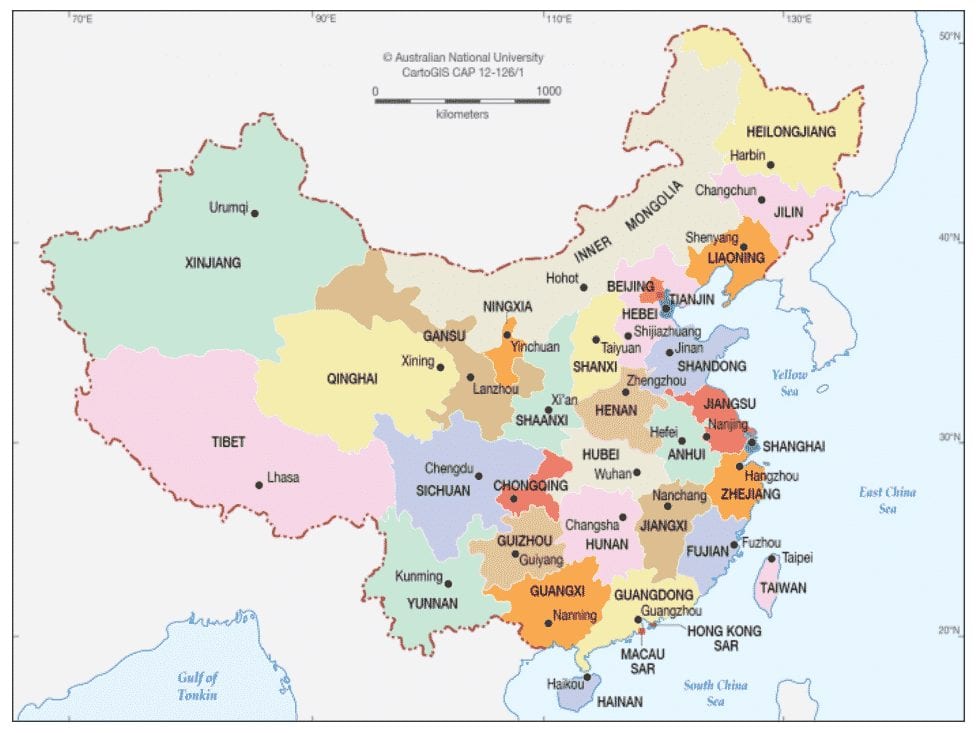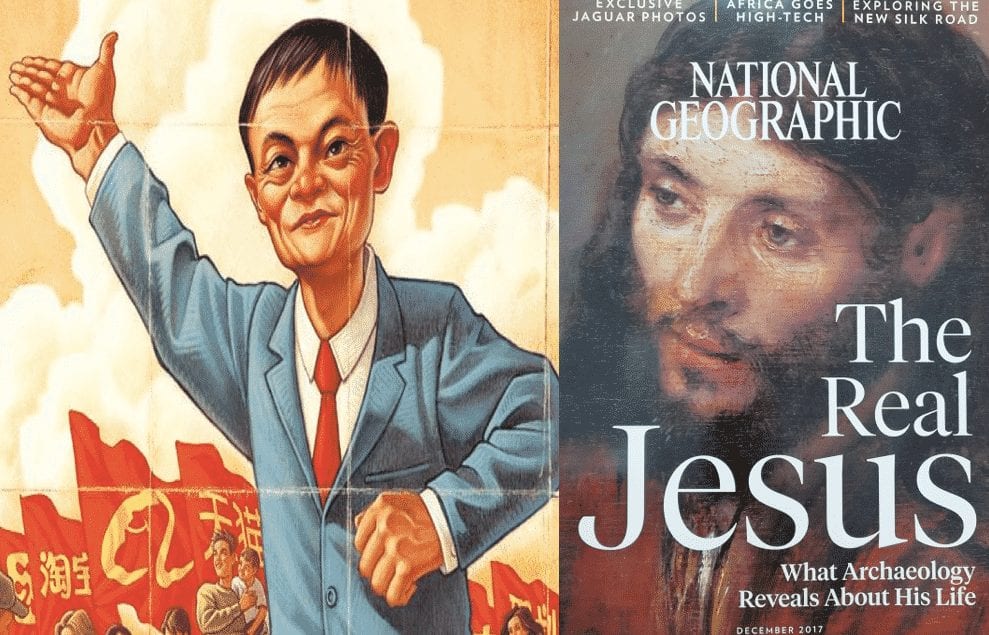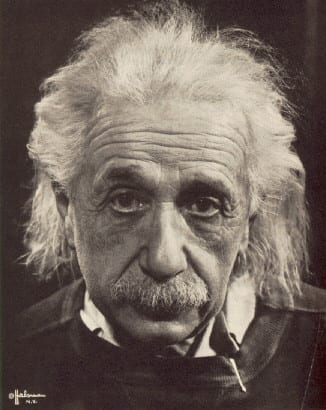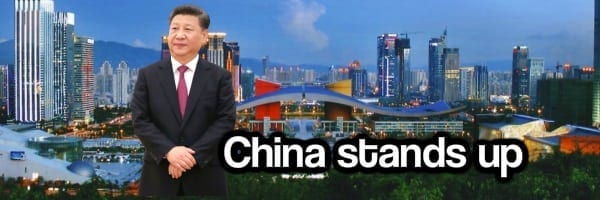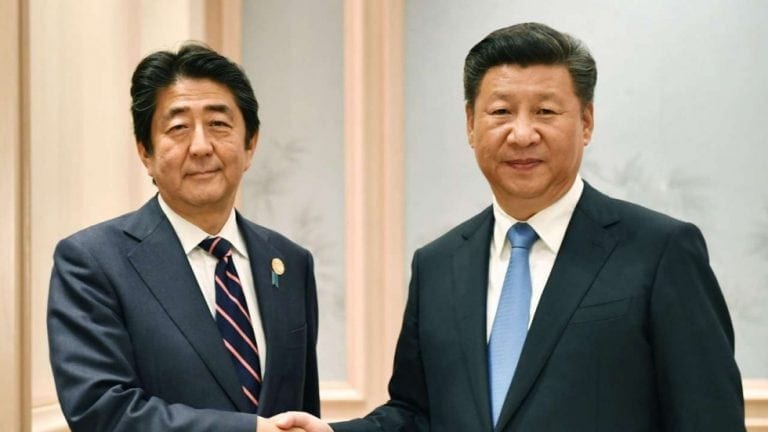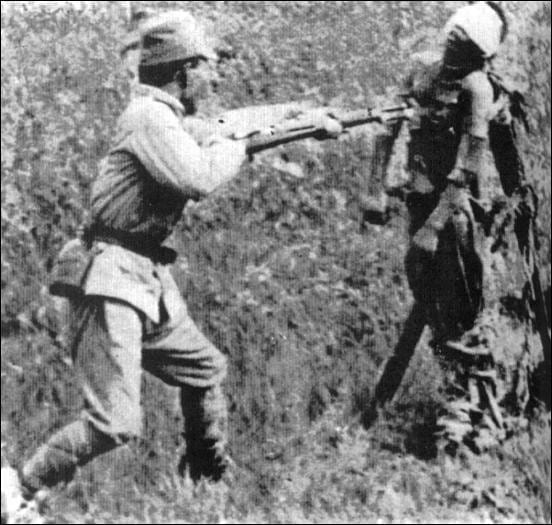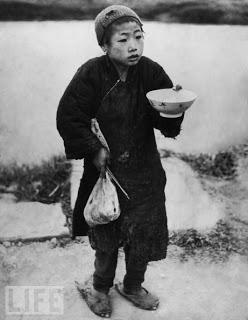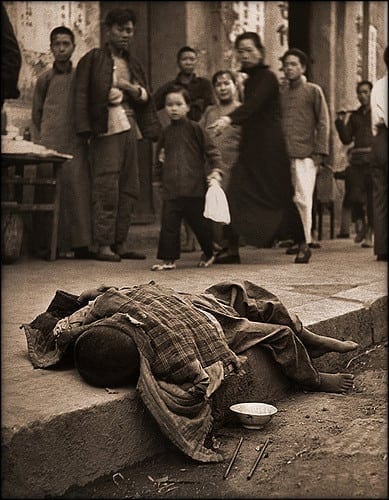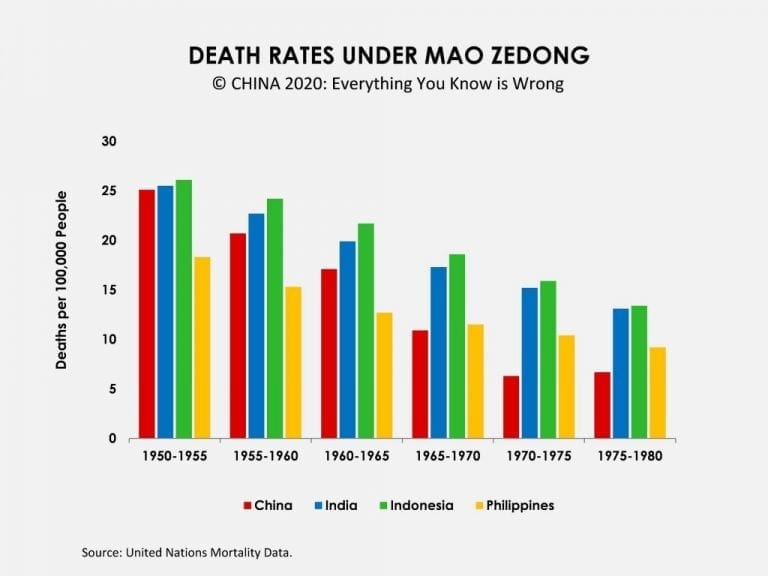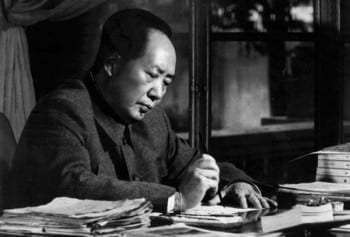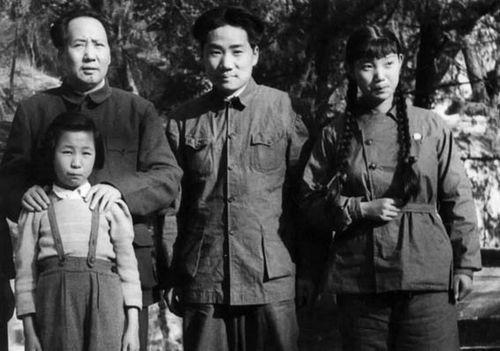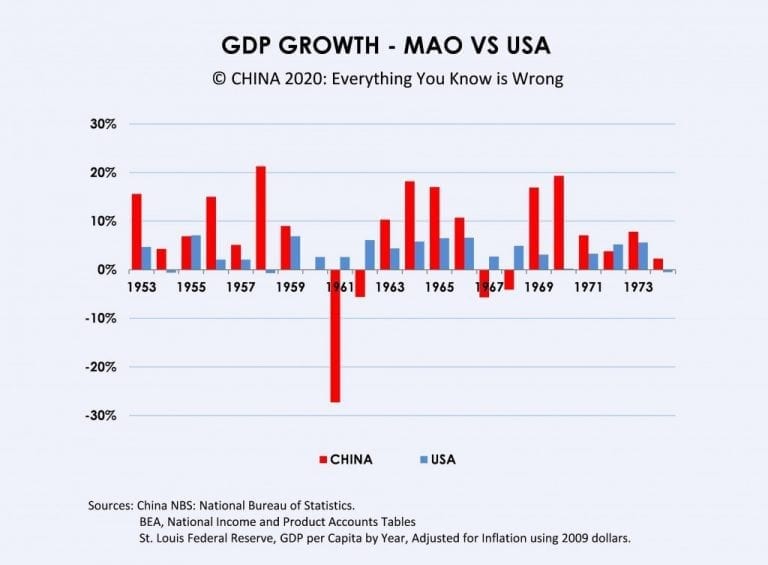China loves being Number Two behind the US – officially of course. China Rising Radio Sinoland

![]() • China loves being Number Two behind the US – officially of course. China Rising Radio Sinoland 171210
• China loves being Number Two behind the US – officially of course. China Rising Radio Sinoland 171210 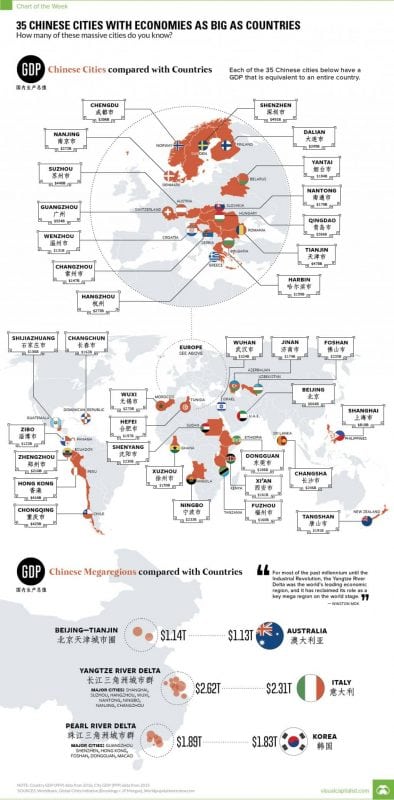
By Jeff J. Brown
Above: hats off to www.visualcapitalist.com for such a fascinating and informative map. This is what the Western empire is up against. China’s GDP in purchasing power parities (PPPs) surpassed the United States in 2014, as the world’s biggest economy, and it’s just getting started, I mean restarted, back to the 5,000 years before Western colonialism’s Opium War drug cartel was illegally foisted on this nation, from 1839, until liberation in 1949.
Downloadable SoundCloud podcast (also at the bottom of this page), as well as being syndicated on iTunes and Stitcher Radio (links below):
All of us Shenzheners can toot our collective horn. My town just surpassed Guangzhou as having the largest urban economy in Guangdong Province, more familiarly known in the West as Canton (http://www.scmp.com/news/china/economy/article/2123047/shenzhen-takes-top-gdp-spot-southern-chinese-province-guangdong).
Baba Beijing does a great job of pitting each province and city in China against each other in a friendly, but professionally serious competition for ranking and status. In order to meet their societal or economic needs, different cities and provinces propose all kinds of ideas to test and try out. These proposals, often dubbed pilot projects, are sent up the flagpole and approved by various government agencies, depending on the level of the original request. A city can usually get approval at the provincial level and a province has to go up to the Central Committee of the National People’s Congress (NPC) or a relevant national agency in the State Council, both based in Beijing. They of course have to present justification in the form of public surveys, statistics, business/development plans and budgets, for consideration. At the same time, counties, villages and neighborhoods innovate administratively, often ad hoc, with Mao Zedong’s mantra, Serve the People, defining the mission. There are certainly thousands of these pilot projects taking place across the country, as I write.
The whole process of how China’s democracy, governance and economy works is really laid out in easy to understand language, in the last two books of The China Trilogy (http://chinarising.puntopress.com/2017/05/19/the-china-trilogy/).
Here is an administrative map of China, with the provinces and their capitals, to help you orient yourself, while reading this article. Shenzhen, where I live is just above Hong Kong.
Westerners have been brainwashed to fear socialism, hate communism and believe that China is some kind of monolithic, totalitarian nightmare (Neil Postman and Sheldon Wolin brilliantly show that the world’s real totalitarianism is in the West: https://en.wikipedia.org/wiki/Amusing_Ourselves_to_Death and https://en.wikipedia.org/wiki/Inverted_totalitarianism, respectively). Nothing could be further from the truth. As explained in my last column about Jack Ma, he himself said that the Communist Party of China (CPC) self-improves and self-innovates. This can be extended to the government at all levels and in the Chinese business world too (http://chinarising.puntopress.com/2017/12/07/jack-ma-is-a-communist-capitalist-jesus-was-a-communist-socialist-china-rising-radio-sinoland-171207/).
Not only in these spheres, but also in public education. Almost no one outside China knows that this country’s citizens are getting the best K-12 education on Planet Earth, which is something that Godfree Roberts and I discussed together on China Rising Radio Sinoland (http://chinarising.puntopress.com/2016/05/07/shanghais-public-school-revolution-is-burying-the-west-godfree-roberts-on-china-rising-radio-sinoland-160507/ and http://chinarising.puntopress.com/2016/07/14/the-myth-of-western-vs-chinese-education-superiority-godfree-roberts-on-china-rising-radio-sinoland-160714/). In these two fascinating interviews, Godfree explains why China is continuing to rank at the top of the list, in the internationally recognized, country comparative PISA tests. One of the reasons is that Chinese school administrators and teachers are hands on for innovation and experimentation. Not to mention, based on my daughter’s experiences studying at Beijing Normal University, I can confidently say she is getting a much better education and preparation for the rest of her life, here in China, compared to the West.
All of this helps explain why Baba Beijing and the Chinese people are marching with determination and unrivaled success into the future. China is not some rigid, dirigiste copycat cookie cutter, as is often portrayed in Western propaganda, but a freely creative, experiment crazy society, where promising ideas often get promoted and if successful, adopted on a wider scale.
The map at the top of this article is proof of China’s dynamic and creative economic development. There are 35 cities shown – not entire provinces – whose PPP GDPs are as big as entire countries around the world (https://www.investopedia.com/updates/purchasing-power-parity-ppp/). I have been to every one of the provinces where these cities are located and in 28 of the 35 cities listed. Most of them you have probably never heard of and unless you are a real China buff, that’s understandable.
Part of the problem for foreigners is the sheer size of China’s cities. Big cities like Beijing, Shanghai, Guangzhou, Chongqing, Wuhan and Hangzhou have over 20 million people in their metro areas. Second tier cities like Shenzhen, Chengdu, Tianjin and Harbin have between 10-20 million. Third tier cities between 5-10 million include Kunming, Wenzhou and Changsha. After that, there are a slew of cities between 2-5 million and many more from 1-2 million.
You really have to use metropolitan and not just urban areas, since many Chinese cities just go on and on, with a huge patchwork of suburbs surrounding the city center. Even with little traffic, driving from one side of Beijing to the other seems like an eternity. Today, metro Guangzhou is over 46-48 million, which is the population of Spain, and its urban area is 25 million, a huge difference. As reference, New York City’s numbers are 24 million metro and 8.5 million urban, Paris 12 million and 2.5 million, and London 14 million and 10 million. By Chinese criteria, Paris and London are second tier cities.
That’s why you can say Shenzhen has a population of eight million and 15 million and you’d be right both times. It just depends on where you draw the line around the city center. Also, Shenzhen proper is very elongated from east to west, so whatever circle you draw has to be elliptical. Knowing that this eight million figure is the urban center, I just kind of split it down the middle, give it range and say 12-13 million (https://en.wikipedia.org/wiki/List_of_cities_in_China_by_population_and_built-up_area).
Getting back to the GDP comparative map, my town, Shenzhen’s economy is a big as Sweden’s. Beijing’s, where I lived for 13 years, has the economy of the United Arab Emirates. I was just in Foshan last week, about a two-hour bus ride west of Shenzhen. It is a third-tier city by Chinese standards, with about seven million people. It looked incredibly prosperous, like a smaller scale Shenzhen. I was really impressed. Its economy is as big as mineral rich Uzbekistan. Guangzhou is the capital of Guangdong Province, which is the world’s manufacturing powerhouse, and this city ranks with Switzerland’s GDP.
Thanks to the South China Morning Post (http://www.scmp.com) for this excellent map, showing the boundaries of all the cities making up the Pearl River Delta Megaregion. You can see how Shenzhen, in dark green, is very elongated east to west. The whole area is infinitely spellbinding and I feel privileged to experience it on a daily basis, write and report about it.
Even more eyepopping are the megaregions that Baba Beijing is developing and integrating. Shenzhen is in the Pearl River Delta Megaregion and it alone has the same economic clout as South Korea. The Changjiang (Yangtze River) Delta produces as much as Italy and if you throw Tianjin in with Beijing, this megaregion rivals Australia. To add insult to injury to the West, while the national GDP average growth in China is around 6.5% (2-3 times as fast as Eurangloland), these megaregions are still mostly growing at 8-10%, thus being the real drivers of the country’s economy. These megaregions and the seven others being planned and developed in China are well covered in Book #3 of The China Trilogy (http://chinarising.puntopress.com/2017/05/19/the-china-trilogy/).
The quote on the GDP comparative map, by Winston Mok states,
For most of the past millennium, until the Industrial Revolution, the Yangtze River Delta was the world’s leading economic region, and is has reclaimed its role as a key mega region on the world stage.
How true. China’s economy was the biggest in the world for the last 5,000 years, barring the horrific 110 years of Western colonialism, starting in 1839 with its illegal and imperial Opium War drug cartel. Even then, it took another 33 years for the United States to overtake China in GDP in 1872, and America did it with slavery until 1864, slave trade in the Americas until 1874 and by exterminating 15 million Natives and robbing and plundering them of an entire continent. China reached its nadir in 1949, when the country was liberated by Mao Zedong and the CPC, who unceremoniously kicked out all the Westerners, Japanese and fascist KMT. Thus in 2014, when China took back from Uncle Sam the world’s PPP GDP trophy, it was not the “new normal”. It was simply the “same old same old”, with a 142-year hiatus. It still is, and as long as the CPC leads the people with its successful communist-socialist economic model, China will continue to pull ahead into the 21st century, relative to imploding capitalist Eurangloland.
All of China’s economic information may in fact be underestimated. In Book #3 of The China Trilogy (http://chinarising.puntopress.com/2017/05/19/the-china-trilogy/), I discuss two Western studies that say China’s economy is in reality 15-30% bigger than officially reported. That being the case, then even in exchange rate terms, China has already surpassed the United States in GDP.
Because the friendly competition between the provinces and cities is very intense, Baba Beijing is going to take control of all the statistical reporting. Northern provinces have been caught fudging numbers, which has raised the ire of the central government (https://www.ft.com/content/fcf7e3a4-4f40-11e7-bfb8-997009366969) in its highly effective antifraud and anticorruption system. Using the greatest number of fastest supercomputers in the world and with the best big data applications anywhere (http://chinarising.puntopress.com/2017/11/30/do-you-see-what-i-see-depends-on-where-you-look-china-rising-radio-sinoland-171130/), the updated information gathering system is expected to be online in 2019 (http://www.scmp.com/news/china/economy/article/2117616/chinas-statistics-bureau-take-over-accounting-provincial-gdp-data). In any case, you only have to live and travel around China to know just how bonafide and sustained the economy is. It’s jaw dropping and just blows you away. Even if a few locales have been tweaking their numbers, you can still see and feel that those studies about China’s underestimated GDP are most likely correct, especially compared to the United States (http://chinarising.puntopress.com/2017/08/26/china-is-the-most-plugged-in-big-economy-in-the-world-china-rising-radio-sinoland-170824/), where everybody knows the statistics are a surreal sham (http://www.shadowstats.com/), and have been for decades.
Baba Beijing really works overtime to soft sell this economic clout, focusing instead on its win-win cooperation and the Belt and Road Initiative (BRI, http://chinarising.puntopress.com/2017/11/05/war-between-anti-west-and-eurangloland-heating-up-fast-china-rising-radio-sinoland-171105/). China uses a two-pronged approach to tell its story to its citizens and the rest of the world. First, it is happy to let arrogant and hubristic Uncle Sam wallow in its imperial vainglory. In flattering terms, it frequently concedes that America is still the “the world’s superpower”. This is coupled with a regular stream of editorials and articles in the Chinese media, for both domestic and international audiences, emphasizing the country’s “We’re Number Two” economic status.
At the same time, especially since Xi Jinping became president five years ago, Baba Beijing has been equally insistent that the world is now multipolar, criticizing the US for its global hegemony and stating that China needs to be treated as a geopolitical equal with the historical Great Powers, which are Eurangloland.
This may help explain why President Xi just announced that China will start taking a more proactive role in the world’s geopolitical affairs (http://www.scmp.com/news/china/policies-politics/article/2122536/china-will-take-more-active-role-world-problems-xi). However, Baba Beijing is happy to defer the mantle of the “world’s new superpower”, for as long as possible. You won’t see the CPC touting those studies that calculate China’s GDP as being underestimated, that’s for sure. For now, Baba Beijing loves being Number Two. It was just reported that China is now second in the new World Internet Development Report 2017, behind the United States, right where it likes to be – officially of course (http://www.wuzhenwic.org/2017-12/05/c_116718.htm).
To celebrate China’s amazing leap into the 21st century, starting in 1949 and still accelerating forward, turn up the volume to 11 on your old Victrola and rock to Van Halen’s Jump. This is the official 1984 video – oh so incredibly cheesy – but a fun and raucous blast from the past, in any case.
Or better yet, buy one of Jeff’s books offered below.

Punto Press released China Rising - Capitalist Roads, Socialist Destinations (2016); and for Badak Merah, Jeff authored China Is Communist, Dammit! – Dawn of the Red Dynasty (2017).
JEFF J. BROWN—Baba Beijing does a great job of pitting each province and city in China against each other in a friendly, but professionally serious competition for ranking and status. In order to meet their societal or economic needs, different cities and provinces propose all kinds of ideas to test and try out. These proposals, often dubbed pilot projects, are sent up the flagpole and approved by various government agencies, depending on the level of the original request.
Jeff can be reached at China Rising, jeff@brownlanglois.com, Facebook, Twitter and Wechat/Whatsapp: +86-13823544196.

This work is licensed under a Creative Commons Attribution-NonCommercial 4.0 International License.
BOOKS RADIO SOCIAL MEDIA Digg: http://digg.com/u/00bdf33170ad4160b4b1fdf2bb86d846/deeper
• China Is Communist, Dammit! Dawn of the Red Dynasty
Sound Cloud: https://soundcloud.com/44-days
Stitcher Radio: http://www.stitcher.com/podcast/44-days-publishing-jeff-j-brown/radio-sinoland?refid=stpr
iTunes: https://itunes.apple.com/cn/podcast/44-days-radio-sinoland/id1018764065?l=en
YouTube: https://www.youtube.com/channel/UCS4h04KASXUQdMLQObRSCNA
Facebook: https://www.facebook.com/44DaysPublishing
Flickr: http://www.flickr.com/photos/113187076@N05/
Google+: https://plus.google.com/110361195277784155542
Linkedin: https://cn.linkedin.com/in/jeff-j-brown-0517477
Pinterest: https://www.pinterest.com/jeffjb/
Sinaweibo (for Jeff’s ongoing photos and comments on daily life in China, in both English and Chinese): http://weibo.com/u/5859194018
Stumbleupon: http://www.stumbleupon.com/stumbler/jjbzaibeijing
Tumblr: http://jjbzaibeijing.tumblr.com/
Twitter: https://twitter.com/44_Days
Website: http://www.chinarising.puntopress.com
Wechat group: search the phone number +8618618144837, friend request and ask Jeff to join the China Rising Radio Sinoland Wechat group. He will add you as a member, so you can join in the ongoing discussion.
